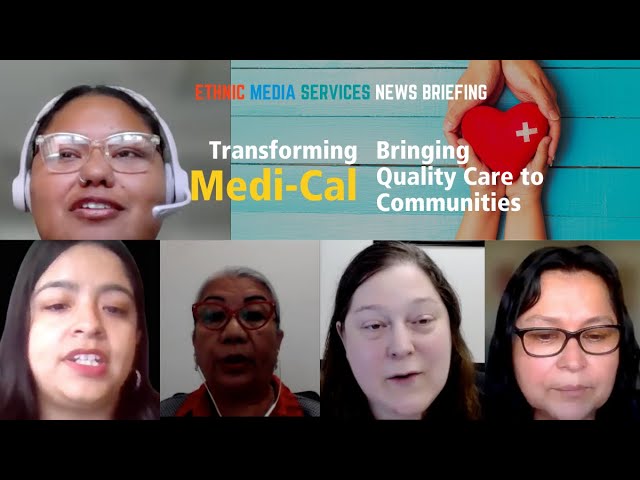Vidya Sethuraman
India Post News Service
California has embarked on a multi-year journey to transform Medi-Cal and provide members with more coordinated, person-centered, and equitable care. The Department of Health Care Services (DHCS) is transforming Medi-Cal so Californians can get the care they need to live healthier lives.
Medi-Cal members now have access to new and improved benefits and services that go beyond the doctor’s office or hospital and address their medical and health-related social needs. At the EMS briefing on April 11, 2024, DHCS leadership discussed the Medi-Cal transformation and the multi-year initiative to create a coordinated, enhanced and, equitable system of care.
California Advancing and Innovating Medi-Cal (CalAIM), is a long-term commitment to transform Medi-Cal, making the program more equitable, coordinated, and person-centered to help people maximize their health and life trajectory.
Sarah Brooks, Deputy Director for Health Care Programs, California Department of Health Care Services said that California is innovating the Medi-Cal program through the multi-year CalAIM. Currently, about one-third of California residents, or nearly 15 million people, have enrolled in Medi-Cal.
The CalAIM program provides new and improved benefits that go beyond traditional health care to meet the medical, behavioral and social needs of Medi-Cal members. CalAIM’s key new services include Enhanced Care Management (ECM), which provides one-on-one care managers for Medi-Cal members with complex physical, mental and social needs; and the Community Support Program, which provides housing support, home modifications, Steps such as healthy meals and asthma relief help Medi-Cal members live independently. In addition, ECM is expanding behavioral health services and standardizing benefits for all Medi-Cal managed care plans across the state.
Rachelle Grant, Senior Clinical Director, Pacific Clinics pointed out that as one of the largest non-profit community organizations in California, Pacific Clinics caters to the needs of customers of different ages in more than 22 languages, with services ranging from early prevention to crisis management.
Agnes Hajek, Director of Health Equity Services, Somali Family Services of San Diego said her organization is committed to providing support to refugees and immigrants who are linguistically and culturally isolated, especially those living in Immigrants and refugees from East Africa, the Middle East, North Africa, and other African and Asian regions in San Diego.
She pointed out that during the COVID-19 epidemic, their community health workers have been on the frontline, helping community members whose native language is not English so that they can more effectively grasp important public health information. In addition, Hayek said they are working to secure funding from the CalAIM program to continue to support the work of community health workers, which are important to keeping community members healthy.







